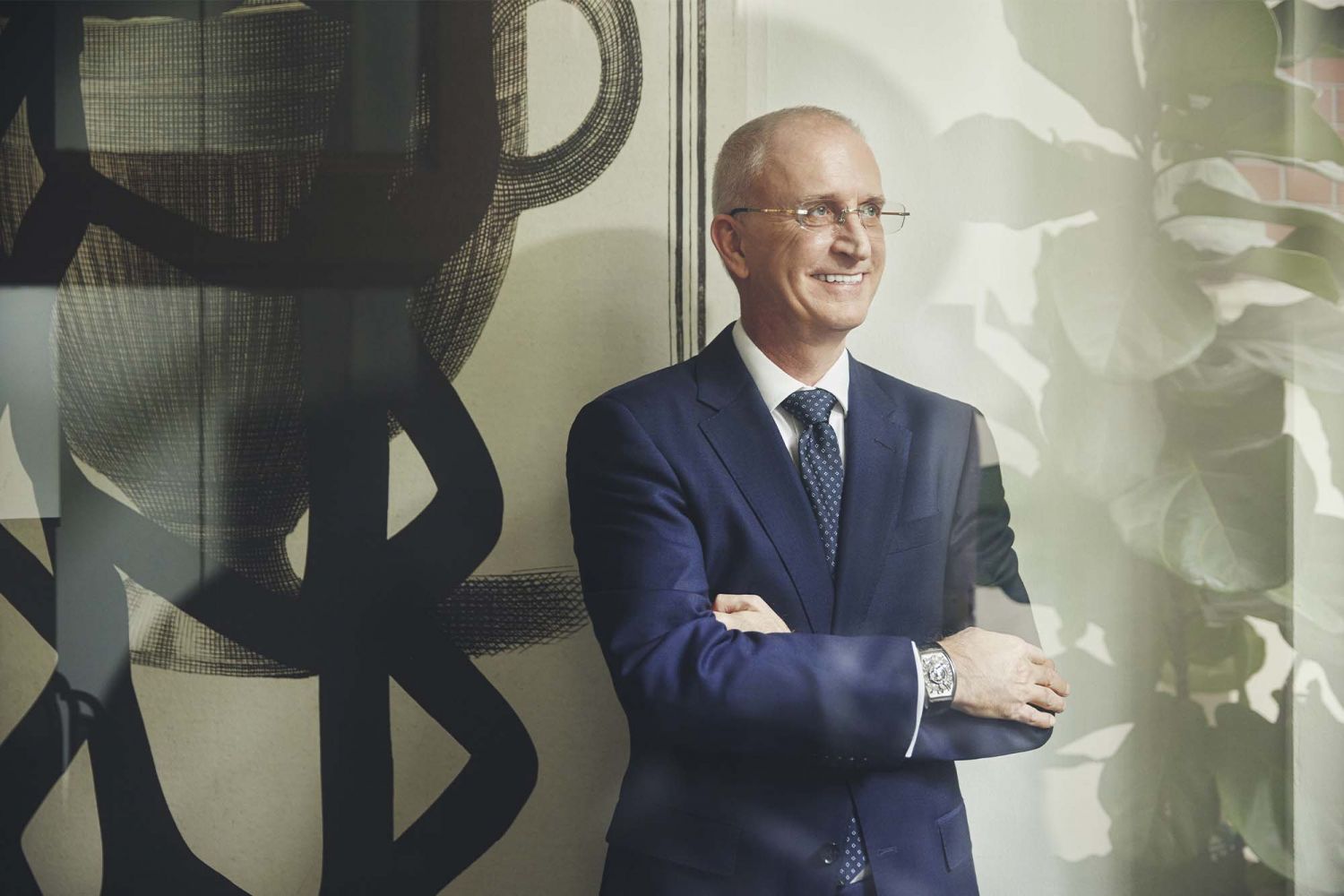Tatler+
Philip Kunz, Head of Global Private Banking for South Asia at HSBC, shares the bank’s vision for Asia and a net zero future
“Although the West may have driven many of banking’s evolutions, its future is in Asia,” says Philip Kunz, Head of Global Private Banking for South Asia at HSBC, who has spent 20 of his 35-year finance career in Asia, witnessing first hand the remarkable transformation of the region’s banking sector.
Backing Kunz’s two decades in the region are roots that stretch even deeper. “HSBC was one of the earliest banks to establish in Singapore,” he shares. The bank opened its first branch at Collyer Quay in 1877, more than 140 years ago. “We have always been focused on helping our local clients capture opportunities—from supporting the country’s rubber exports in the 1880s to its post-war rebuild and the technology push in the 1970s. Our purpose remains true to this day, even in a new era moulded by digitisation, environmental, social and governance (ESG) adaptation, shifting trade and supply chains, and rising wealth,” Kunz asserts. He shares HSBC’s strategies for navigating these shifts and its plans for the near future.
Read more: HSBC Jade Launches the #SupportEntreprenHER Campaign to Promote Women in Business
LOOK NO FURTHER THAN HOME
According to McKinsey & Company’s Asia-Pacific Banking Review 2019, personal financial assets in Asia-Pacific will total US$69 trillion by 2025. “This represents three quarters of the global total,” Kunz says, adding that “two thirds of Asian households will move into the middle income brackets over the coming decade”.
HSBC is poised to capture this new wealth to become Asia’s leading wealth manager. The bank plans to leverage on its presence in Singapore to unlock new growth opportunities for its clients in the region. The decision to use Singapore as a launch pad was a no-brainer. As a well-established business and wealth hub, the country is attractive to investors due to its openness to trade and its well-regulated environment. It is also favoured by companies seeking a gateway into Southeast Asia and Asia.
“To capture the opportunities across Asia, we’re adding more than 5,000 people to our retail and private banking front lines over the next three years,” Kunz reveals. “We’re also improving our digital capabilities and platform, and developing new wealth solutions, particularly for high-net-worth and ultra-high-net-worth clients.”
GROWING AN INTERGENERATIONAL NEST EGG
With the increase in wealth in the region comes an increase in the number of family offices. “We’re seeing greater interest from Asian clients, who are turning to family offices to ensure a smooth transfer of wealth,” confirms Kunz. “The task of creating meaningful legacies for affluent families is becoming more complex and challenging.”
To meet this demand, HSBC set up the new Institutional Family Office in Hong Kong and Singapore last year. The service allows single-family office clients access to the bank’s investment banking specialists and solutions, on top of private banking benefits.
“We believe that the enhanced coverage will better serve the growing needs and levels of sophistication of family offices, especially with the increased demand for sustainable investment solutions,” Kunz says.
There is indeed a generational change in investment attitudes, and proper management of a family’s legacy cannot be achieved without bridging the gap between one generation and the next.
“Our research has shown that compared to their parents, the new and rising generation is increasingly driven to influence the world and exert a positive social impact,” Kunz shares. “Our goal is to give this unique group of individuals the support they need to plan strategically for the wealth and businesses they will come to manage or influence.”
HSBC has gone above and beyond to engage its next generation of clients through initiatives such as the Next Generation Conference and Next Generation Sustainability Leadership Programme. More than platforms for networking and exchanging ideas, these initiatives are an immersive experience. Participants have been on field trips to the jungles of Borneo to witness first hand the impact that humanity’s behaviour has on nature and sustainability.

